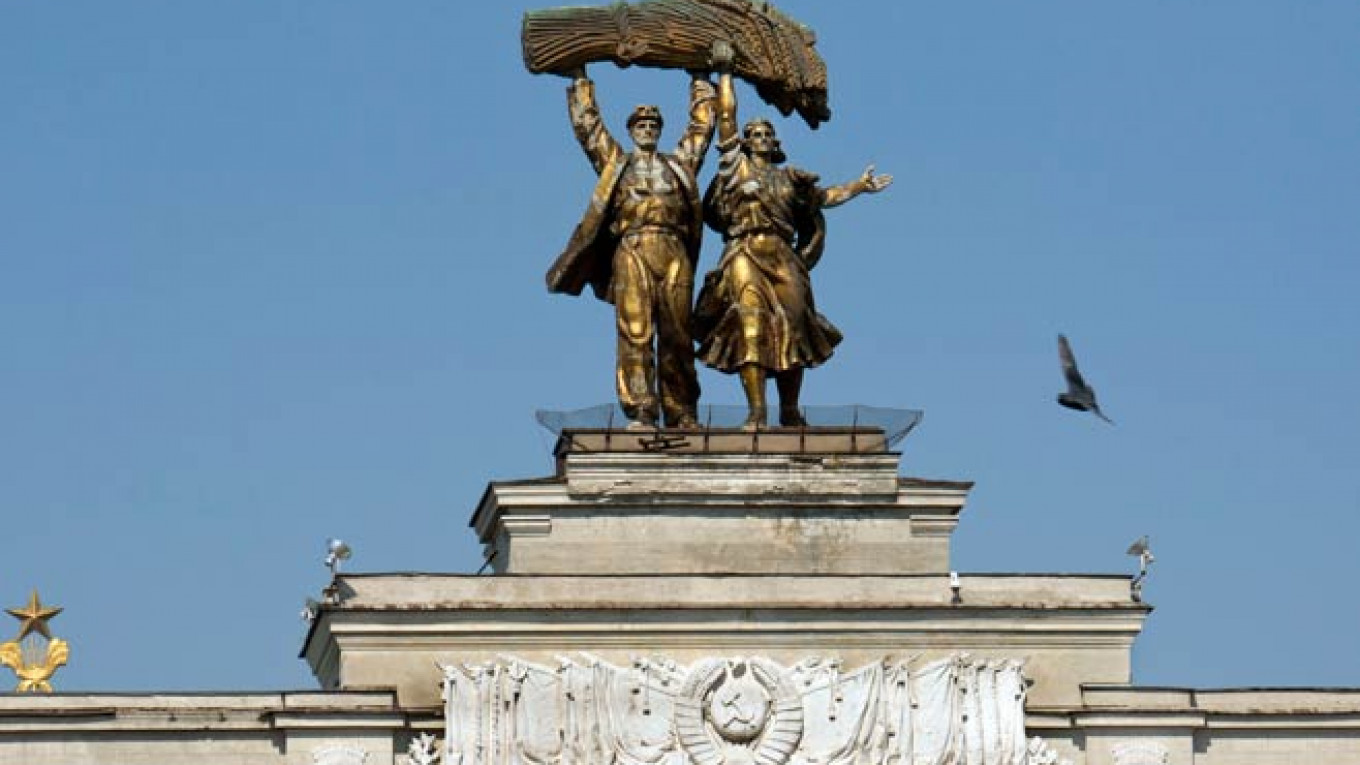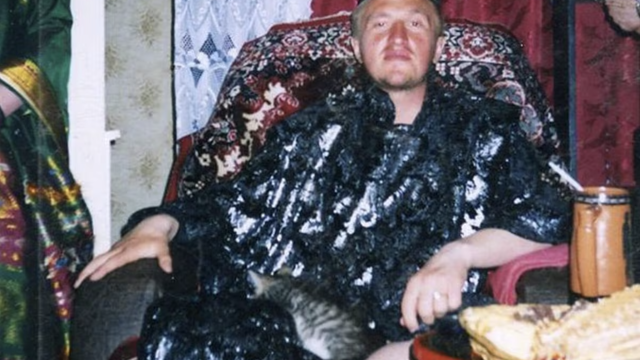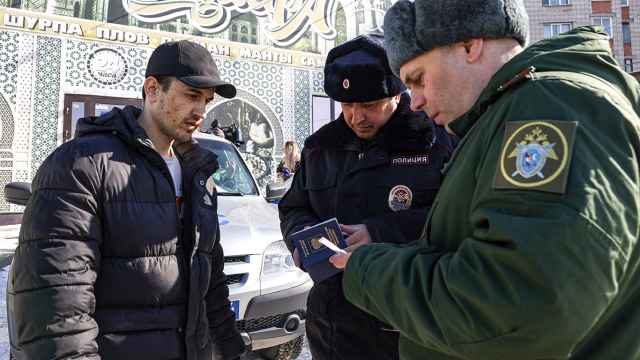The new management of Moscow's iconic All-Russia Exhibition Center, or VDNKh, has cleared the sprawling territory of illegally built structures and shish-kebab stands to make the space more convenient and attractive for visitors ahead of the summer season, the center's director said.
Construction crews are also laying down new asphalt and doing landscaping work across the complex, which is famous for its Soviet-era pavilions but has become filled with amusement park rides, food kiosks and a wide array of shops over the last two decades.
See the photo gallery: Moscow Purges VDNKh of All 'Clutter'
Earlier this month, the city appointed a new general director for the property, who initiated the beautification effort.
"We got rid of all the billboards and the food stands and cleared away 90 percent of the clutter that remained afterwards," director Vladimir Pogrebenko told Lenta.ru in an interview last week. "We are replacing the asphalt and curbs, and we have begun arranging the flowerbeds."
"It is not comfortable walking around VDNKh, of course, but most of the work will be done by May," he said.
The renovation is just the beginning of what Pogrebenko said would be a massive redevelopment project. After years of being largely ignored by the authorities, who allowed the pavilions representing the various Soviet republics to become filled with shops selling everything from souvenirs to pharmaceuticals, the complex is set to be restored as an architectural landmark and an attractive outdoor space for Muscovites.
The renewed VDNKh could feature exhibitions of Russian agricultural products, as it did during the Soviet era, and museums funded by state corporations like Gazprom and Rosneft, Pogrebenko said. Beyond the area with the pavilions, a massive aquarium — the largest in Europe, according to Pogrebenko — is set to be completed by the end of this year.
But most of the changes will not be taking place any time soon. Pogrebenko said it will take the city a year to come up with a development concept, then another seven years to carry out the work.
In the short term, many of the retail operations in the pavilions will be removed, and this summer the outdoor complex will aim to attract more families. Events will be organized for children, including at a newly opened exhibit of Russian technological achievements put on by the Polytechnical Museum.
And that fresh asphalt will be open to rollerbladers and bicyclists, who in summer can often be seen zipping around the complex's pedestrian lanes.
"VDNKh should become a multifunctional space that will attract parents with children, businessmen coming to expositions, elderly people and athletes, including rollerbladers and bicyclists," Pogrebenko said.
Contact the author at newsreporter@imedia.ru
A Message from The Moscow Times:
Dear readers,
We are facing unprecedented challenges. Russia's Prosecutor General's Office has designated The Moscow Times as an "undesirable" organization, criminalizing our work and putting our staff at risk of prosecution. This follows our earlier unjust labeling as a "foreign agent."
These actions are direct attempts to silence independent journalism in Russia. The authorities claim our work "discredits the decisions of the Russian leadership." We see things differently: we strive to provide accurate, unbiased reporting on Russia.
We, the journalists of The Moscow Times, refuse to be silenced. But to continue our work, we need your help.
Your support, no matter how small, makes a world of difference. If you can, please support us monthly starting from just $2. It's quick to set up, and every contribution makes a significant impact.
By supporting The Moscow Times, you're defending open, independent journalism in the face of repression. Thank you for standing with us.
Remind me later.






